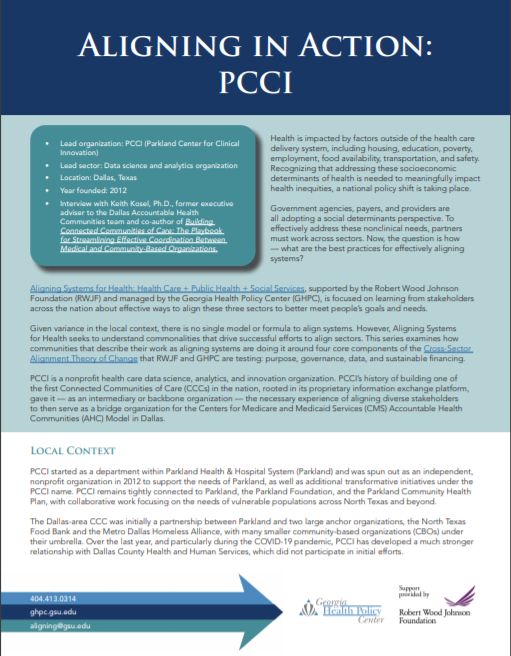
This case study examines how the Parkland Center for Clinical Innovation’s (PCCI’s) history of building one of the first Connected Communities of Care in the nation, rooted in its proprietary information exchange platform, gave it — as an intermediary or backbone organization — the necessary experience of aligning diverse stakeholders to then serve as a bridge organization for the Centers for Medicare and Medicaid Services’ Accountable Health Communities Model in Dallas.
PCCI is a nonprofit health care data science, analytics, and innovation organization that started as a department within Parkland Health & Hospital System (Parkland) and was spun out as an independent, nonprofit organization in 2012 to support the needs of Parkland, as well as additional transformative initiatives under the PCCI name. PCCI remains tightly connected to Parkland, the Parkland Foundation, and the Parkland Community Health Plan, with collaborative work focusing on the needs of vulnerable populations across North Texas and beyond.
During the COVID-19 pandemic, PCCI’s data science group adapted its predictive modeling to identify COVID-19 hotspots at the neighborhood level and disseminate this information to community partners to facilitate testing and enhanced contact tracing.
Aligning Systems for Health: Health Care + Public Health + Social Services, supported by the Robert Wood Johnson Foundation and managed by the Georgia Health Policy Center, is focused on learning from stakeholders across the nation about effective ways to align these three sectors to better meet people’s goals and needs.

 Back to Resources
Back to Resources